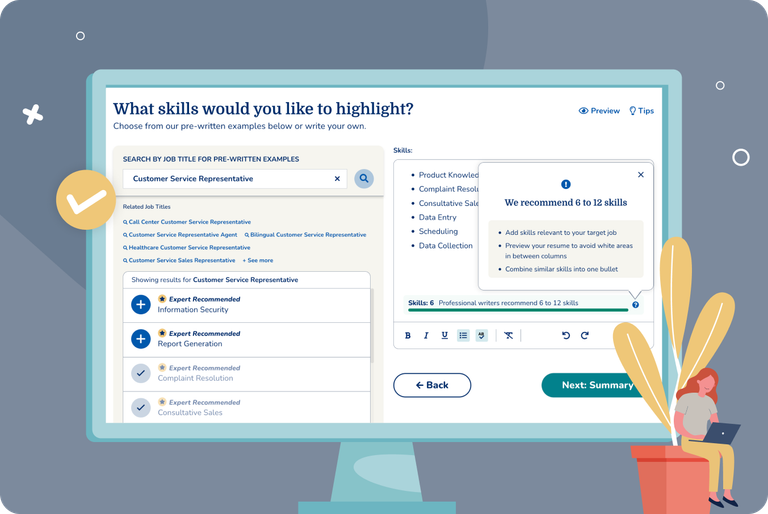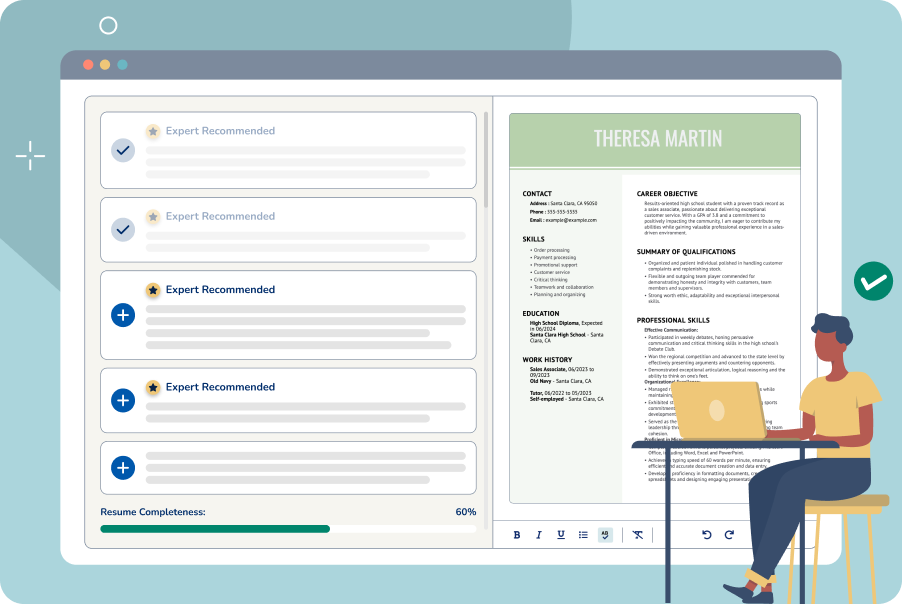Our customers have been hired at: *Foot Note
Time spent in the criminal justice system can definitely add challenges to your job search during the years after your release; there’s no doubt about this. Some employers stand fully behind their decision to reject ex-offenders early in the review process, and there’s not much you can do to combat deeply ingrained employer bias or sidestep legitimate concerns about this detail of your background. But there’s a fine line between a job search being difficult and impossible. If you’ve repaid your debt to society, you deserve a chance to navigate the job market and start rebuilding your life and your career. Here are eight simple resume tips that can help you launch this process.
1. Don’t share your criminal history upfront.
Unless you’re filling out a formal document supplied by an employer that asks about your criminal history, you don’t have to announce this detail right away in your resume or anywhere in your initial job application. There’s no rule or law that says you need to do this, and making this announcement voluntarily can get you crossed off the list before you’ve had a chance to share your credentials.
2. Get help.
Use a professional resume writing service, a professional resume editor, or an online editing and resume creation tool (like MyPerfectResume!) to make sure your presentation is in line with employer expectations. The task of creating a resume can feel overwhelming to candidates who have been off the market for a long time, and a little outside help can keep things in perspective and ensure your application reflects all the present day best practices.
3. Keep your resume future-oriented.
Keep your resume summary, resume employment history, and cover letter focused on your future, not your past. Emphasize what you know how to do and what you plan to do during the next three, five and ten years. Discuss the skills and knowledge that you bring to the table and highlight how you’ll add value to your next employer’s business.
4. Keep your resume employer-centered.
A little bit of prior research can help with this process. Review the job description carefully and look up this employer online. Gather any information that can help you directly address the needs of this company and this position, and then integrate this information into your resume.
5. Avoid a chronological format.
Resumes can be created using either a chronological format or a functional format, and if you’ve spent some time in the criminal justice system, the functional format may be a wiser option. This layout will allow you to emphasize your skill sets and abilities while downplaying the specifics of your career timeline. The chronological format may draw unnecessary attention to large resume gaps or time spent away from the labor force.
6. Don’t use prison language.
If you worked while you were in the system, don’t say you worked for Wilmington State Prison. Instead, say you worked for the State of Delaware. This is accurate and truthful, and it can prevent employers from reflexively dismissing your application. If you win an interview, you’ll need to explain fully, but you’ll have the opportunity to frame your incarceration and the skills you acquired while in prison in a far better light.
7. Stay positive.
Keep in mind that any negative information can hurt your prospects, especially if you have a criminal offense on your record. Be scrupulously honest in your resume, but this doesn’t mean you have to divulge or emphasize your weaknesses. Stay focused on your short-term goal (landing an interview) and worry about crossing the next bridge when you get there.
8. Check your own background before you apply.
Go online and search for your name just as you would if you were an employer. By doing this, you’ll learn more about what employers will find when they investigate your history, and you’ll want to be prepared. While you’re at it, explore the resources that employers can use in your state to review the criminal backgrounds of potential candidates. The DMV can help you examine your information from an employer’s side, as can a number of paid options. As you submit your resume and cover letter, prepare for questions about the information you find. --- For more on how to create an effective resume and gain a foothold in the labor market, even after a period of incarceration, visit MyPerfectResume.
Our customers have been hired at:*Foot Note












